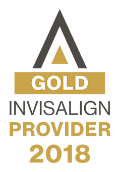Please note we may not offer this treatment at our office. Contact (253) 761-5422 to learn more.
Surgery May Help Erase Your Sleep Apnea Symptoms
If you’re struggling with sleep apnea and traditional treatments like continuous positive airway pressure (CPAP) or oral appliances haven’t worked, sleep apnea surgery might be the solution you need. Sleep apnea is a serious sleep disorder that can lead to daytime fatigue, cardiovascular risks, and even impaired cognitive function.
For residents in Tacoma, Lakewood, Puyallup, and surrounding areas, surgical options can provide long-term relief and improve your quality of life. Call our Tacoma dental office at (253) 761-5422 to get started.

What is Sleep Apnea?
Sleep apnea is a condition where breathing repeatedly stops and starts during sleep. The most common type is obstructive sleep apnea (OSA), which occurs when the upper airway becomes blocked due to relaxed throat muscles or excess tissue. Other forms include:
- Central Sleep Apnea (CSA): Caused by the brain failing to send proper signals to control breathing.
- Complex Sleep Apnea: A combination of obstructive and central sleep apnea.
If you have severe obstructive sleep apnea, surgery may be recommended to address structural issues like a deviated septum, enlarged tonsils, or a collapsed soft palate.
Types of Sleep Apnea Surgery
When CPAP therapy or lifestyle changes like losing weight aren’t effective, surgery can help. Here are some common surgical procedures for sleep apnea:
- Uvulopalatopharyngoplasty (UPPP): Removes excess tissue from the throat, including the uvula and soft palate, to widen the airway.
- Genioglossus Advancement (GA): Repositions the tongue to prevent it from blocking the throat during sleep.
- Maxillomandibular Advancement (MMA): Moves the upper jaw and lower jaw forward to create more room in the airway.
- Inspire Therapy: A cutting-edge treatment that uses a hypoglossal nerve stimulator to deliver mild stimulation and keep the airway open.
- Nasal Surgery: Includes septoplasty and turbinate reduction to address nasal obstruction and improve airflow.
- Radiofrequency Ablation: Reduces soft tissue in the throat to minimize airway collapse.
Each procedure is tailored to the patient’s specific needs, whether it’s addressing the nasal passages, throat, or jaw.
Who is a Candidate for Sleep Apnea Surgery?
Surgery is typically considered after other treatments have failed. You may be a candidate if:
- You have severe obstructive sleep apnea.
- You’re unable to tolerate CPAP therapy.
- You have specific anatomical issues like a deviated septum or enlarged tonsils.
- You’re committed to lifestyle changes, such as losing weight and avoiding alcohol.
A thorough physical exam and sleep study will help determine if surgery is right for you.

Benefits of Sleep Apnea Surgery
Patients who undergo sleep apnea surgery often experience:
- Improved Sleep Quality: Fewer apnea episodes mean deeper, more restful sleep.
- Reduced Snoring: Many procedures, like UPPP or palate implants, significantly reduce snoring.
- Enhanced Daytime Alertness: Better sleep leads to improved focus and energy.
- Lower Cardiovascular Risks: Treating sleep apnea can reduce the risk of hypertension, heart disease, and stroke.
- Reduced Dependence on CPAP: Some patients no longer need CPAP therapy after surgery.
What to Expect During and After Surgery
Most sleep apnea surgeries are outpatient procedures performed under general anesthesia. Recovery times vary, but most patients can resume normal activities within about a week to three weeks.
Post-Operative Care Tips:
- Manage pain with prescribed medications.
- Follow dietary guidelines to avoid irritating the throat or nasal passages.
- Attend follow-up appointments to monitor healing and surgical outcomes.
- Practice good sleep hygiene and maintain a healthy lifestyle to maximize results.
Cost of Sleep Apnea Surgery in Tacoma, WA
The cost of sleep apnea surgery typically ranges from $6,000 to $10,000, depending on factors like:
- The type of procedure (e.g., UPPP, MMA, or Inspire Therapy).
- The surgeon’s experience and facility fees.
- Whether your insurance covers the procedure.
Many insurance plans cover sleep apnea surgery if it’s deemed medically necessary. Be sure to check with your provider for details.
Frequently Asked Questions
Can surgery cure sleep apnea?
While surgery can significantly improve or even eliminate symptoms, it’s not a guaranteed cure. Continued follow-up care and lifestyle changes are essential for long-term success.
Is sleep apnea surgery painful?
Most patients experience some discomfort, but pain is manageable with medications. Procedures are performed under general anesthesia to minimize pain during the surgery.
What’s the recovery time for sleep apnea surgery?
Recovery typically takes about a week to three weeks, depending on the sleep apnea surgery procedure. Most patients notice improvements in their symptoms within two months.
Ready to Restore Your Sleep?
If you’re tired of sleepless nights and ineffective treatments, sleep apnea surgery could be the answer. Contact our Tacoma office at (253) 761-5422 to schedule a consultation and learn more about your sleep apnea treatment options. We proudly serve patients in Tacoma, Lakewood, Puyallup, Federal Way, Gig Harbor, and University Place.





















